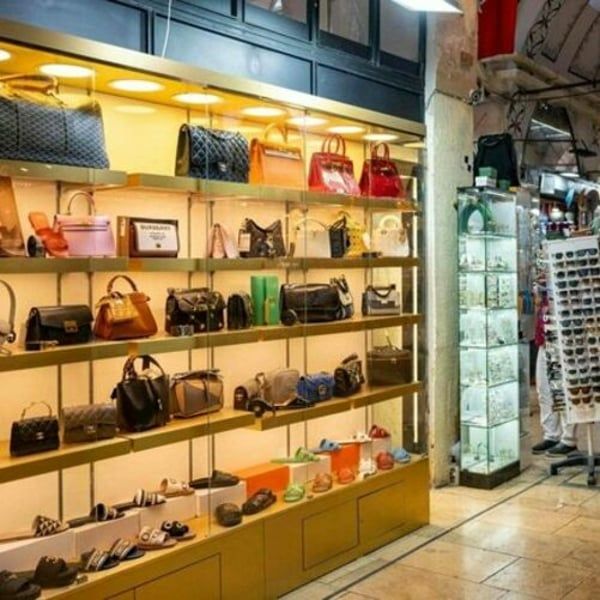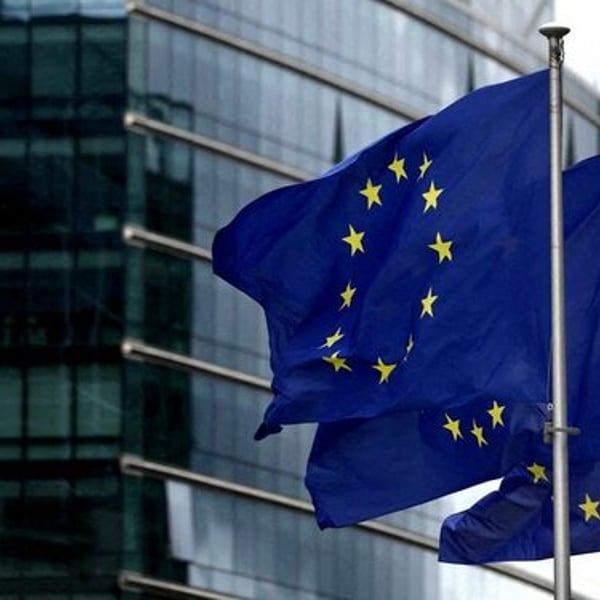By
AFP
Published
July 20, 2024
Cut-priced designer perfumes and fake high-end handbags line the ornate alleys of Istanbul's Grand Bazaar, and traditional traders say luxury counterfeits are robbing the market of its character.
Where traditional Turkish crafts once flourished beneath the painted ceilings of the Ottoman-era market, the elegant carpet shop run by Hasim Gureli is now surrounded by stores selling designer knockoffs.
“At that time, imitations were rare,” said Gureli, vice president of the bazaar's merchants' association and a member of its board of directors.
“When some people started selling fake bags, they kept quiet. They were afraid of the state,” the carpet seller added.
Many others, among the former inhabitants of the bazaar, who have fond memories of the small workshops that filled its labyrinthine alleys, despair at seeing it invaded by fraudulent facsimiles.
Two aisles down, tea set seller Gazi Uludag lamented that the Grand Bazaar had “lost its unique character.”
“There are only imported or counterfeit products left and the situation is getting worse every year,” he said.
In her handmade carpet shop, Florence Heilbronn-Ogutgen laments the fact that a craftsman friend “who used to make beautiful, authentic bags in very good leather” had to close his shop, unable to earn a living.
For the trader, who has been working in the bazaar since 1998, artisans “can no longer survive” in the face of competition from dubious scammers.
“Nowadays, the best boutiques are the counterfeits!” he said.
“They are the only ones left who can afford to pay the $10,000 to $15,000 a month rent for the main alley. The bazaar has lost its soul.”
The Grand Bazaar, one of the largest covered markets in the world, dates back nearly six centuries and attracts millions of tourists each year, many of them lured by the promise of cheap luxury.
“All of Europe comes here! I've even had wives of footballers,” says Kemal, 36, who does not want to give his surname for fear of having his merchandise checked.
Kemal made a living selling “made in Turkey” counterfeits for 15 years, before counterfeit luxury goods began taking over, one by one, each of the hallowed bazaar windows.
Her Celine faux calfskin and Saint Laurent quilted leather bags “are the same quality as the originals, but five to ten times cheaper,” the seller promised.
Whatever the model, you can find an imitation at the Grand Bazaar.
“If you can find it on the Champs-Élysées, you can find it here,” he said.
As one of the main production and transit countries for counterfeit goods, along with China and Hong Kong, imitations are omnipresent in Turkey.
The trade supports an entire economy of its own, from small retailers to manufacturers who also export their counterfeits to the European Union.
“They make very high profits. In the Grand Bazaar you can see handbags selling for thousands of dollars,” said Dilara Bural, a criminologist at the University of Bath in the United Kingdom.
Organised crime may be in the spotlight, “but we cannot generalise and say that every counterfeiting ring in Turkey is linked to organised crime. That is not true,” he stressed.
For Bural, the trade is made possible by a “broad cultural acceptance of counterfeiting” in Turkey, which “in some cases extends to key law enforcement officials, including the police and judiciary.”
Turkish law firms hired by luxury giants are trying to crack down on counterfeiters, but that's easier said than done.
“The problem is that you have to get search warrants for every address. There are thousands of shops in the Grand Bazaar, so you have to get thousands of seizure warrants,” lawyer Sena Yasaroglu told AFP.
He said that even with 20 people handling intellectual property cases at the Moroglu Arseven law firm where he works, the challenge was formidable.
A spokesman for the Grand Bazaar's board of directors insisted that “Istanbul police conduct frequent inspections” of shops.
Standing in front of his tiny 2.5-square-meter shop, which he rents for $1,000 a month, Murat says he worries about the inspections “every day.”
In 2018, he and his brother watched as police raided their business.
The bill was high: 800 fake bags confiscated and 40,000 euros ($43,500) in fines and legal fees.
However, the 27-year-old trader from the southeastern agricultural province of Sanliurfa immediately resumed his trading activity.
“I have no choice,” he said.
“Otherwise, what would I do? Go back to being a shepherd in my village? I don't want to do that.”
Copyright © 2024 AFP. All rights reserved. All information appearing in this section (press releases, photographs, logos) is protected by the intellectual property rights of Agence France-Presse. Consequently, the content of this section may not be copied, reproduced, modified, transmitted, published, displayed or commercially exploited in any way without the prior written consent of Agence France-Presse.












